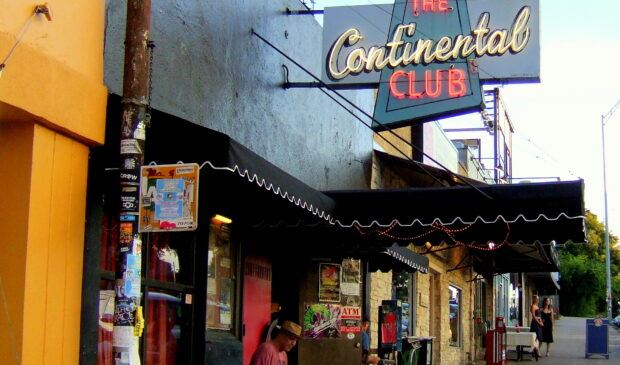Music Commission wants tight guidelines on venues receiving Live Music Fund awards
Thursday, February 8, 2024 by
Chad Swiatecki The Music Commission has formed a working group that could reshape how the city will award grants to live music venues as part of an expansion of the Live Music Fund. The group, which will likely include five commission members and operators of a handful of local venues, is expected to deliver its recommendations by the end of March so city staff can move forward with the rollout of the $4.5 million program.
At Monday’s meeting, staff from the Music and Entertainment Division gave a presentation on the guidelines for the 2024 iteration of the Live Music Fund, which uses Hotel Occupancy Tax money to award grants to local artists, event promoters and, in a new addition, live music venues.
The city has proposed increasing the award amounts for artists and promoters from a $15,000 minimum to a maximum of $30,000, with a total award pool of $3.5 million. Venues would be eligible for a total pool of $1 million, with award amounts split between $30,000 for those with operating budgets under $100,000 and $60,000 for those with budgets in excess of $100,000.
Commission members questioned the rationale behind the eligible expenses venues could cover with grants they receive, specifically when they would be required to follow the city’s $200 per-musician rate that is higher than the minimum guarantees of most clubs.
Erica Shamaly, manager of the Music and Entertainment Division, said venues can use city grant money to cover costs such as marketing campaigns, salaries for employees working on a funded project or insurance costs with no requirement to meet the $200 per-musician minimum. That pay requirement would come into play only if a venue designates artist pay, possibly for specific events, as one of the expenses they planned to cover using city money.
Commissioner and local musician Lauryn Gould said there’s no requirement for venues that receive city money to meaningfully increase their pay for local musicians.
“When we were talking about adding venues into the mix, the idea was that that money would be primarily spent to subsidize music performances at these venues to basically funnel that Live Music Fund money through the venues to the musicians playing at those venues, allowing the venues to pay musicians a fair wage,” she said. “If all of these expenses are allowable, that seems like it’s going to really spread those funds a lot thinner.”
Shamaly said the state guidelines on the use of HOT funds ensure wide discretion for recipients, with the main goal of promoting local tourism. She said the city plans to review the expense reports and other data from the next round of recipients, as it is doing with the awards given last year with the goal of refining guidelines to make the most impact in the local creative economy.
“We just have to give the flexibility to the venues to have what they need to get the expenses done so that there is a venue for musicians to play at, and also pay musicians the standard rate of pay,” she said. “We don’t know until we have the data exactly how it’s all gonna shake out.”
Commissioner Scott Strickland said the city needs to build in stronger artist pay requirements into the grant language for any venue receiving money from the city.
“There is nothing that says that venues can’t just tack on these extra miscellaneous expenses and justify their expenses and say, ‘hey, there’s like a cleaning fee and a this fee and a that fee and a this fee, or whatever the case may be … and then they just pocket that money,” he said. “They can literally just make up anything that they wanna make up and there’s no oversight, nothing about any of that stuff at all.”
Photo made available through a Creative Commons license.
The Austin Monitor’s work is made possible by donations from the community. Though our reporting covers donors from time to time, we are careful to keep business and editorial efforts separate while maintaining transparency. A complete list of donors is available here, and our code of ethics is explained here.
You're a community leader
And we’re honored you look to us for serious, in-depth news. You know a strong community needs local and dedicated watchdog reporting. We’re here for you and that won’t change. Now will you take the powerful next step and support our nonprofit news organization?







